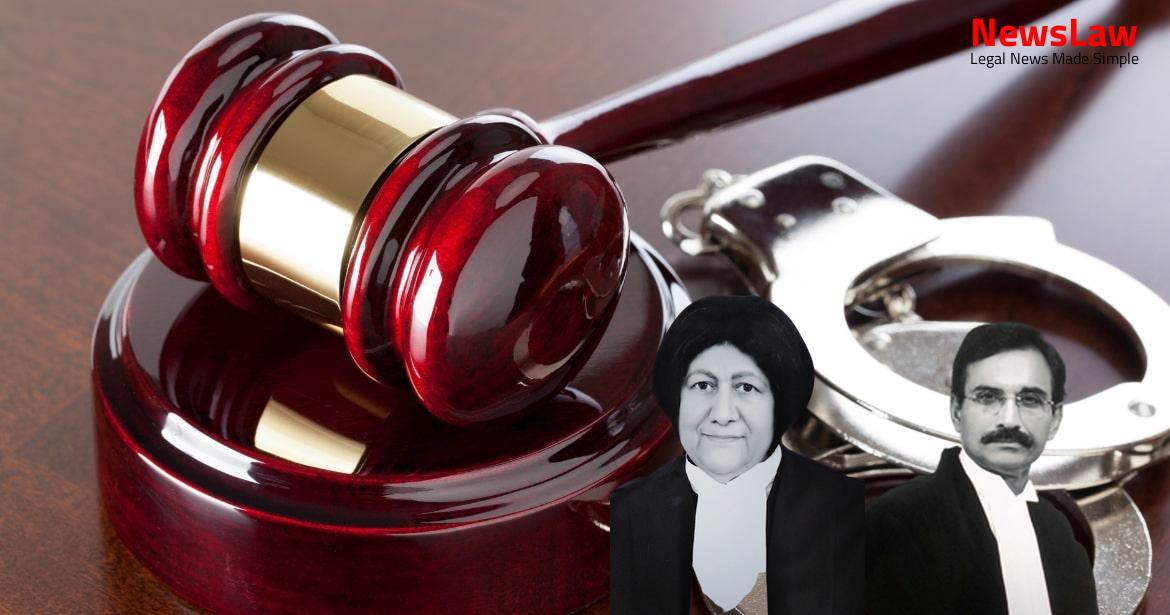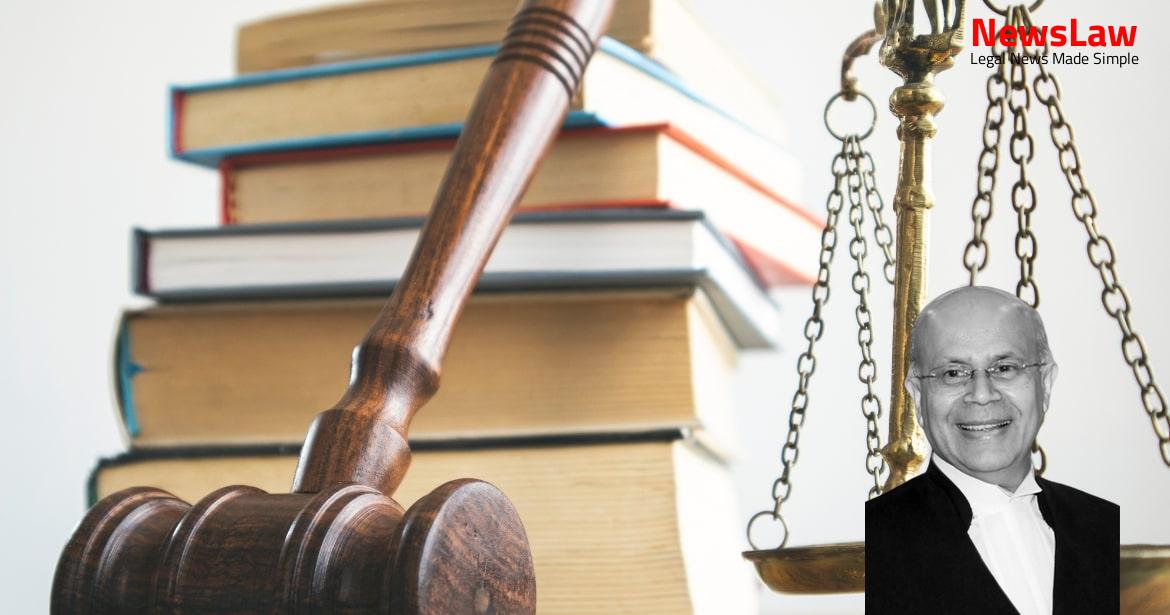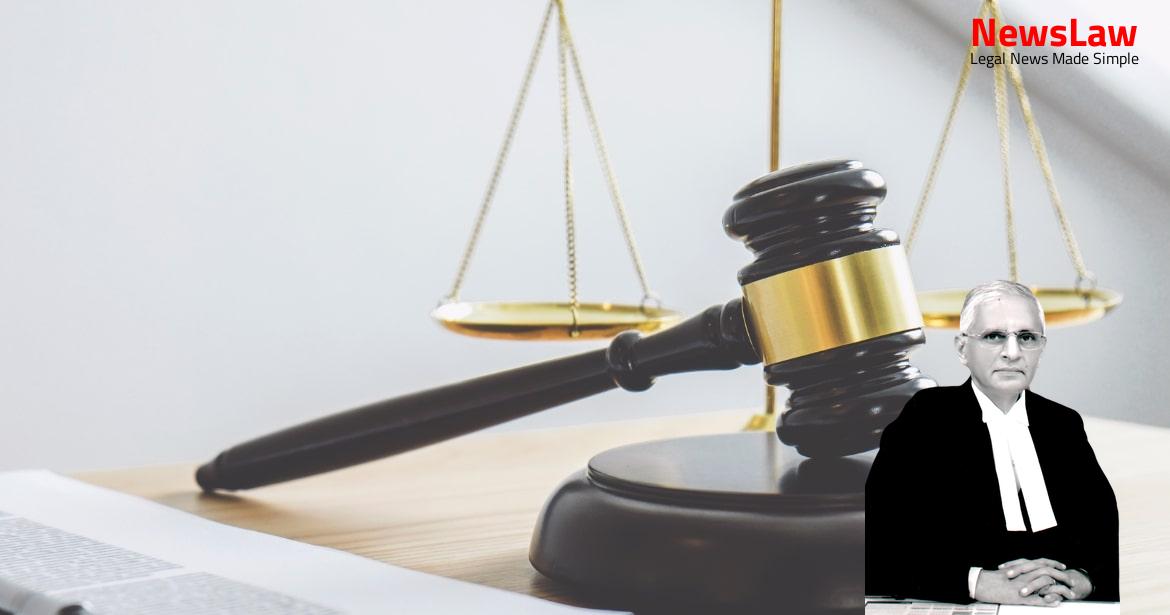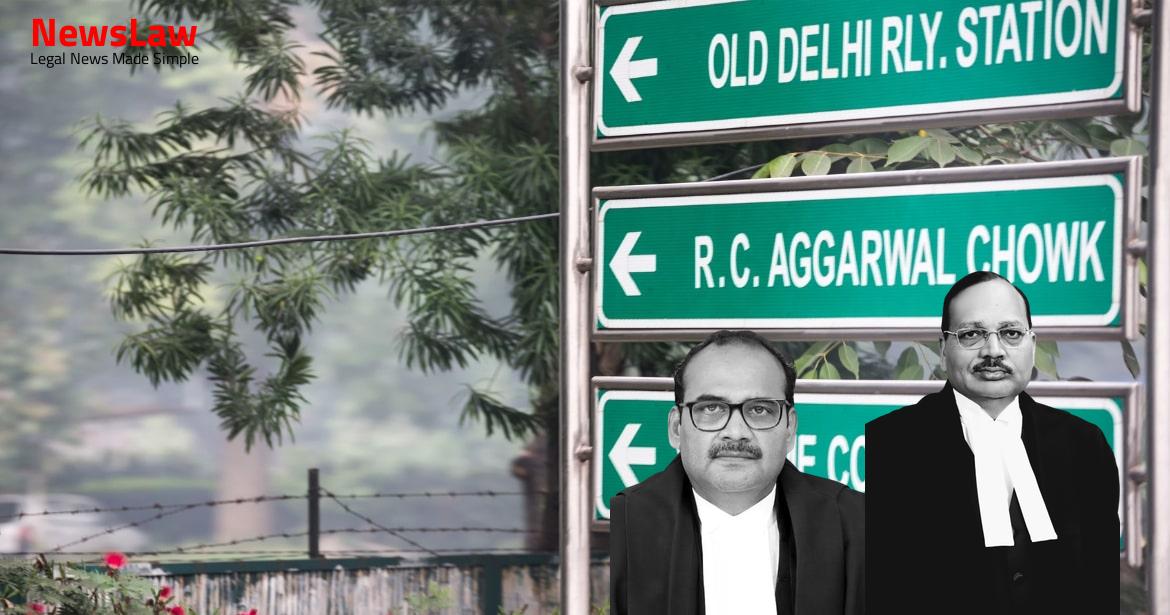The recent legal case delves into the court’s thorough analysis of the principle of proportionality in relation to a challenged admissions rule. The court scrutinized the reasonableness of the restrictions placed on fundamental rights, emphasizing the necessity of a direct nexus between restrictions imposed and the objectives of the law. Factors such as legality, compliance, and the balancing test played a crucial role in determining the constitutionality of the legislation. Explore more about this intriguing legal analysis in the blog post.
Facts
- Rule 12 (8) (a) of the Madhya Pradesh Chikitsa Shiksha Pravesh Niyam, 2018 declared violative of Article 14 of the Constitution of India.
- State of Madhya Pradesh directed to fill up 7 unfilled seats of 1st year MBBS course through college level counselling within 7 days.
- Reasons for the order dated 03.02.2021 include Rule 11 (7) stating admissions in the second round are final, Rule 12 (2) barring consideration of allotment order candidates in the mop-up round, and the process based on Rule 10.
- Appellants are before the Court due to the dismissal of the Writ Petitions challenging the relevant rules.
- The Madhya Pradesh Niji Vyavasayik (Pravesh Ka Viniyaman Evam Shulk Ka Nirdharan) Adhiniyam, 2007 was enacted to regulate admissions, fix fees, and reserve seats in private unaided professional educational institutions.
- The relevant amendment being challenged is Rule 12 (8) (a) of the Admission Rules.
- The amendment states that vacant seats after MOP-UP round allotment will not be included in college level counseling.
- Allotment of admissions after the final round of counseling is governed by Rule 13.
- The High Court disposed of the case by allowing the petitioner to file a representation before the Directorate of Medical Education.
- The Appellants-Private Medical Colleges filed writ petitions challenging the constitutional validity of Sub-Rule 8 (a) of Rule 12.
- Admission to private unaided professional educational institutions is covered under Chapter III of the Act.
- The procedure for the second round of counseling is in Rule 11, and for the mop-up round is in Rule 12.
- The appeals heard together due to the common point of challenging Rule 12 (8) (a).
Also Read: Legal Analysis on Seniority Fixation in Contempt Petitions
Arguments
- Petitioner argues that Rule 12(8)(a) restricts their right to occupation under Article 19(1)(g) of the Constitution of India.
- The objective of Rule 12(8)(a) is to prevent manipulations in the admission process and to ensure that non-meritorious students do not secure seats in better colleges.
- The Petitioner contends that Rule 12(8)(a) results in vacant seats, leading to national resource wastage and financial burden on educational institutions.
- The State justifies Rule 12(8) as necessary to prevent manipulations, blockage of seats, and admission of less meritorious candidates to better colleges.
- The State argues that Rule 12(8) aims to maintain transparency in the admission process and prevent candidates with lower merit from gaining an unfair advantage over those with higher merit.
- A judgment by the High Court of Madhya Pradesh in a related petition supported the prevention of manipulation in admission processes and stopping the admission of non-meritorious candidates in the mop-up round.
- Unfilled seats after two rounds of counseling are addressed in the mop-up round and through college-level counseling as per Rule 13.
- Admission to private unaided medical institutions in Madhya Pradesh is based on allotment through common counseling conducted by the State.
Also Read: Vertical Mobility and Selection Process in Police Department
Analysis
- Proportionality is crucial in determining the reasonableness of restrictions placed on fundamental rights.
- The State must justify the necessity of restricting fundamental rights when legislation is challenged.
- There must be a direct and proximate nexus between the restrictions imposed and the objective of the Act for a strong presumption of constitutionality.
- The principle of proportionality involves a balancing test and a necessity test.
- The balancing test scrutinizes imbalances in penalties or infringement of rights, while the necessity test requires the least restrictive alternative to infringe on human rights.
- Legislation or rules can be struck down if they are found to be arbitrary or unreasonable.
- Factors like prevailing social values and needs are considered in determining the reasonableness of restrictions.
- Judicial review on proportionality involves aspects like legality and compliance with the requirements of proportionality.
- Challenges to restrictions under Articles 19 (2) to 19 (6) are tested based on the principle of proportionality.
- Failure to conform to the Statute under which it is made
- Exceeding the limits of authority conferred by the enabling Act
- Rule 12 (8)(a) is violative of Articles 14 and 19 (1)(g) of the Constitution as it has no rational connection with its intended objective.
- Keeping seats vacant due to non-joining does not serve the interest of the general public.
- The classification of seats remaining vacant lacks a rational connection with the purpose of Rule 12(8)(a).
- The restriction imposed by the Rule is deemed unreasonable upon applying the test of proportionality.
- Leaving seats unfilled in recognized medical colleges is detrimental to public interest.
- The policy of not allowing managements to fill all seats lacks a nexus with its intended purpose.
Also Read: Interpretation of Section 80-IA Deductions
Decision
- The High Court judgment is set aside
- The Appeals are allowed
Case Title: INDEX MEDICAL COLLEGE HOSPITAL AND RESEARCH CENTER Vs. THE STATE OF MADHYA PRADESH (2021 INSC 61)
Case Number: C.A. No.-000867-000867 / 2021



